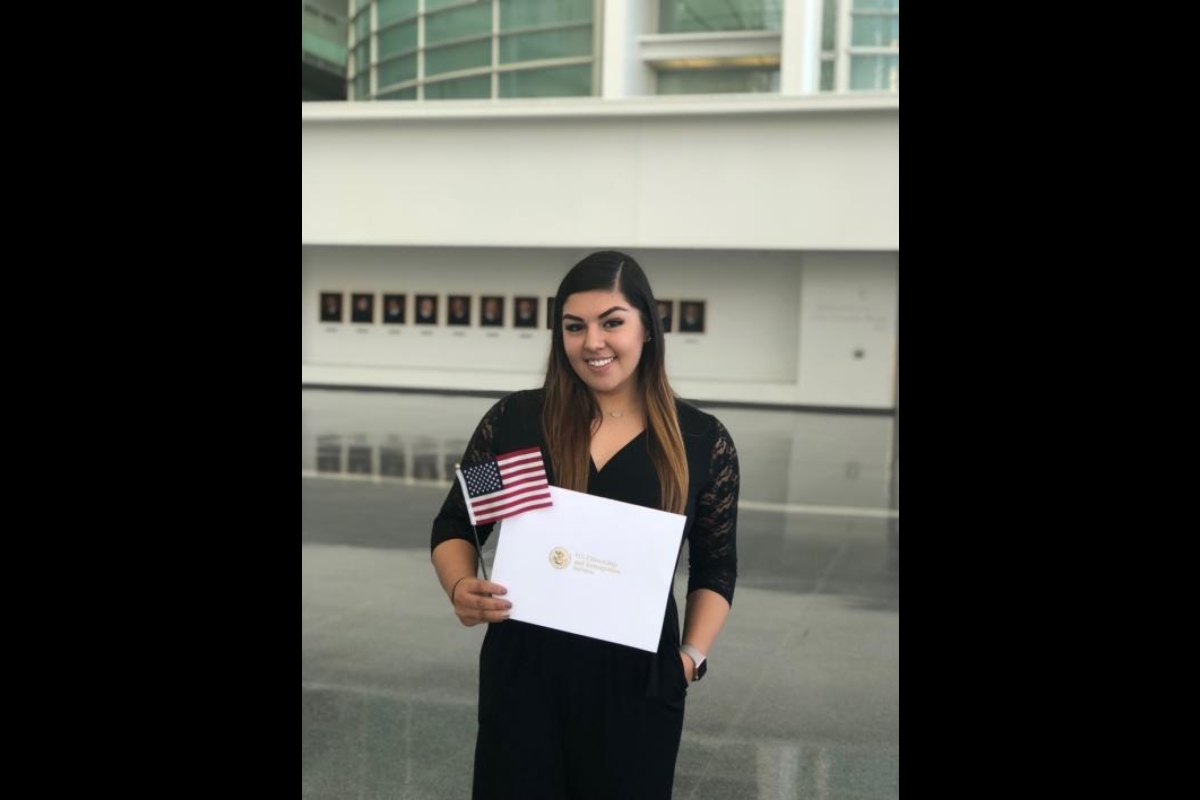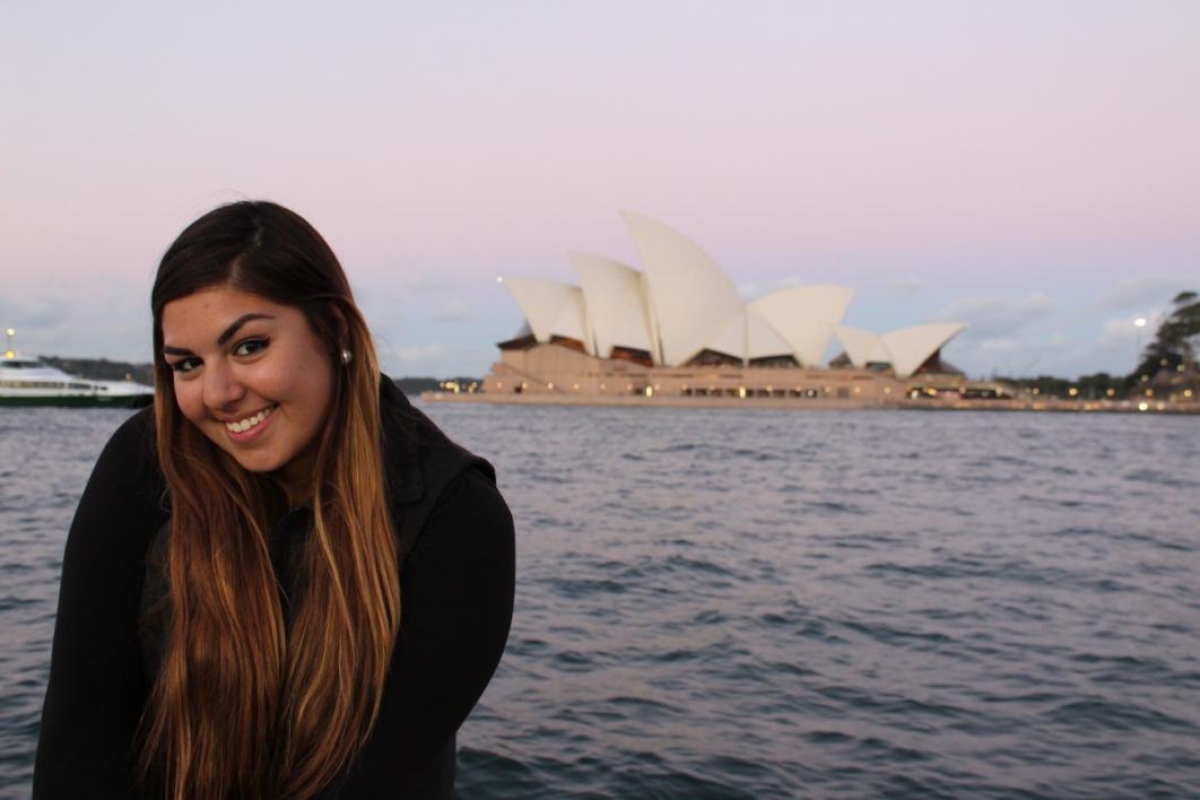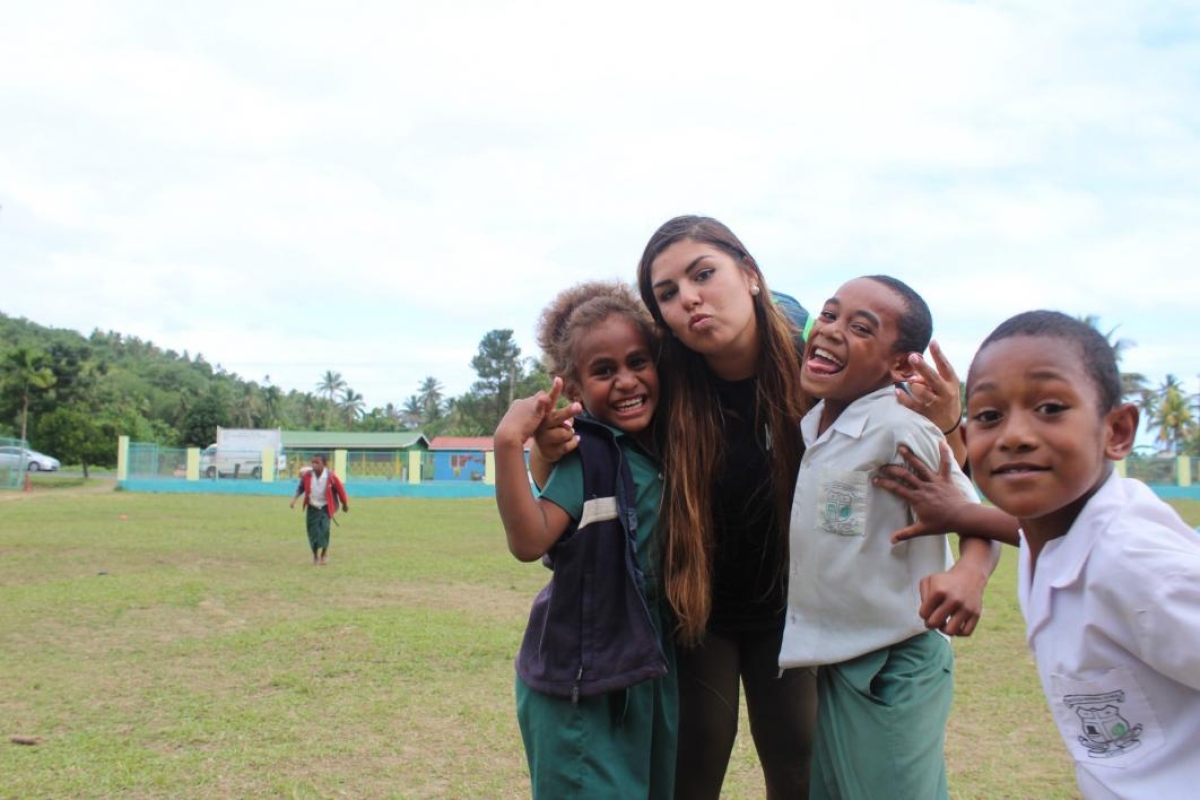Tourism major sees opportunities to help global economies through technology and cultural collaboration

Diana Lizcano Hernandez is the Spring 2018 outstanding graduate for ASU's School of Community Resources and Development.
Editor’s note: This is part of a series of profiles for spring 2018 commencement.
Diana Lizcano Hernandez says that frequent moves and three years living in China sparked her interest in tourism. In particular, she was fascinated by who decides what goes where in building tourism destinations. Ever since graduating high school, she knew she wanted to go into this field and is excited by the many different avenues she can take with her degree.
Hernandez is the outstanding Spring 2018 graduate for the ASU School of Community Resources and Development. She is also a student in Barrett, The Honors College, where she worked with the city of Apache Junction to create a 10-year tourism plan.
Her research looks at the growing use of technology in tourism—specifically by millennials and independent travelers. For her honors thesis, Hernandez researched the needs of female solo travelers and created a personal tour-guide app to match them with local resources while also accounting for safety.
“The U.S. is very technology-driven — everything is on our cellphone. However, there are certain countries that are not there yet,” said Hernandez. “We need to look at how we can improve the use of technology to enhance the tourist experience.”
After graduation, she is pursuing a master’s in international affairs and global management at the ASU Thunderbird School of Global Management. Her goal is to work in consulting or planning to develop newly found tourist destinations in Asia and South America.
“I am highly passionate about the tourism industry and applying it as a tool for economic growth and multicultural collaboration,” said Hernandez.
You can read the full Q&A below:
Question: What was your “aha” moment when you realized that you wanted to be in this field?
Answer: Growing up, we moved around a lot. I think that started my ability to quickly adapt to new environments, languages and people. I lived in Shanghai, China, for three years, and it sparked an interest in Chinese culture and multicultural collaboration. I’m very interested in who decides what goes where in building tourism destinations. Coming out of high school, I knew I wanted to go into that field. I’m particularly interested in planning and all of the details.
Once I got to ASU, I realized how much goes into planning. It got scarier, but I also saw that there are so many different avenues I can take with this degree. I could literally go into so many areas and have an impact.
Q: What is something that you learned during your time at ASU that surprised you or shaped your perspective?
A: One class that has had a huge impact is a tourism planning class that Dr. Evan Jordan taught — it looks at tourism destinations that have been most successful economically, culturally and socially. For example, there may be little thought on the cultural impacts of building a hotel on an island. On the other hand, some destinations look to the future and plan for longer-term success.
For my thesis with Barrett, The Honors College, I looked into female solo travelers specifically and creating an app that meets their demands. The goal is to match them with local destinations to show them around, while also accounting for safety. I did a lot of background research on millennials’ use of technology and their behavior, looking at women and traveling independently.
Q: What piece of advice would you give your past self when you were first starting at ASU?
A: Over the summer, I went to Australia and Fiji, which was probably one of the best experiences of my entire life. Take advantage of all of the opportunities that ASU offers.
Q: What’s next now that you have your degree?
A: This summer I’ll be doing an internship with a property management company that manages hotels. They didn’t have an internship program, but I reached out with a proposal. I revised it a couple of times. I’ll be their first intern. I’m super excited to be on board. I came up with the whole proposal and responsibilities on my own, and they’ve been very supportive.
Then I’ll be pursuing a master’s in international affairs and global management at the ASU Thunderbird School of Global Management. My dad is an alumnus, class of 2003. Eventually, I would like to work in consulting or planning to develop newly found tourist destinations in Asia and South America.
Q: What is one issue that is close to your heart that you hope to help solve?
A: One of the biggest issues, that obviously one human being can’t fix, in the tourism industry is how companies build huge hotels in Third World countries and all of the money leaks back out. Locals end up getting 4 percent of the entire profit. I’d like to help bridge that gap. I’d like to help bring a local voice to gain a better understanding the cultural and social impacts.
Also, the U.S. is very technology-driven — everything is on our cellphone. However, there are certain countries that are not there yet. We need to look at how we can improve the use of technology to enhance the tourist experience.
I am highly passionate about the tourism industry and applying it as a tool for economic growth and multicultural collaboration.
Written by Heather Beshears
More Science and technology

Applied Materials invests in ASU to advance technology for a brighter future
For nearly 60 years, global giant Applied Materials has been hard at work engineering technology that continues to change how…

Meet ASU engineering students who are improving health care, computing and more
Furthering knowledge of water resource management, increasing the efficiency of manufacturing point-of-care health diagnostic…

Turning up the light: Plants, semiconductors and fuel production
What can plants and semiconductors teach us about fuel production?ASU's Gary Moore hopes to find out.With the aim of learning how…




